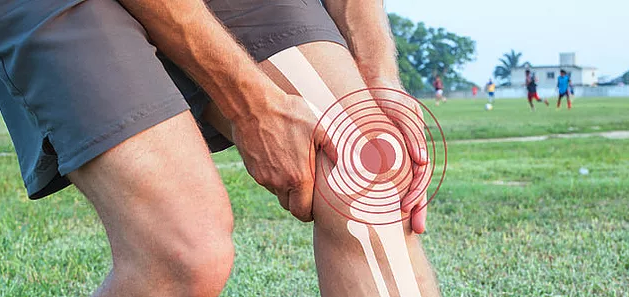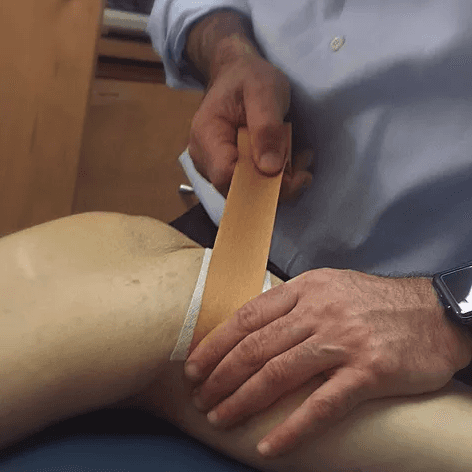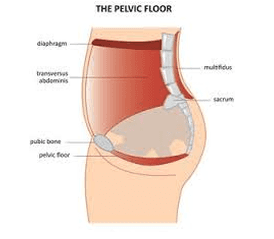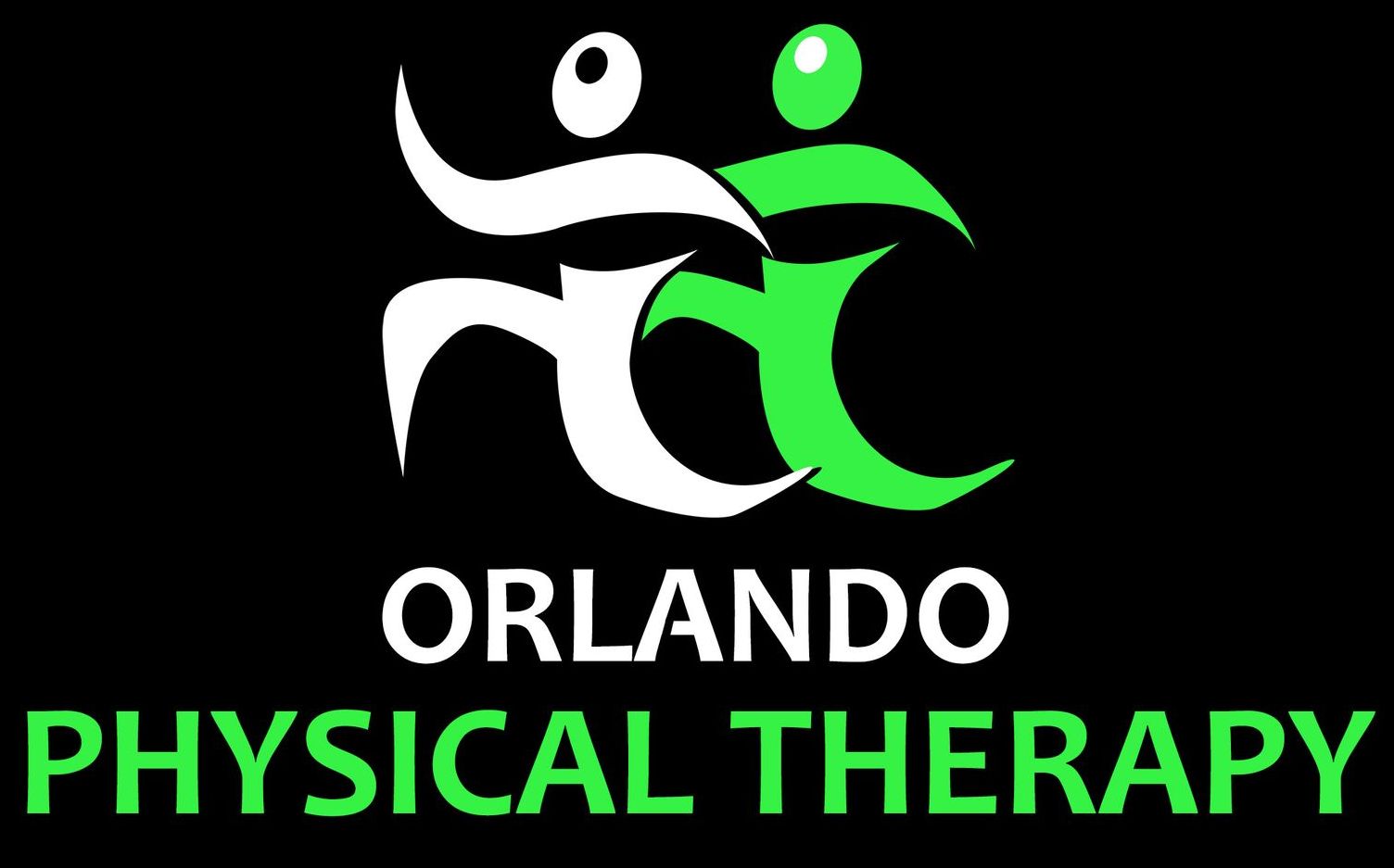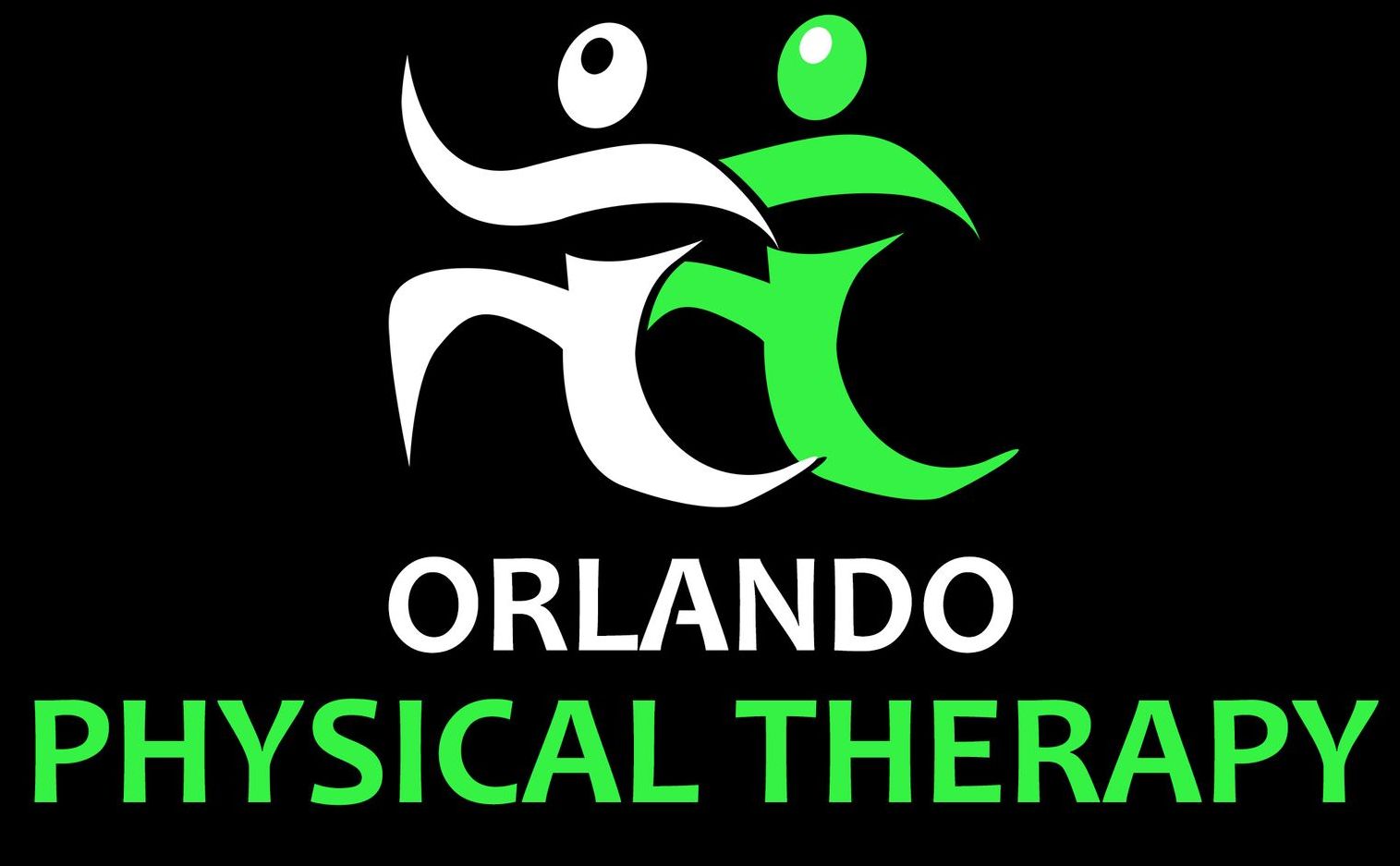What is TMJ
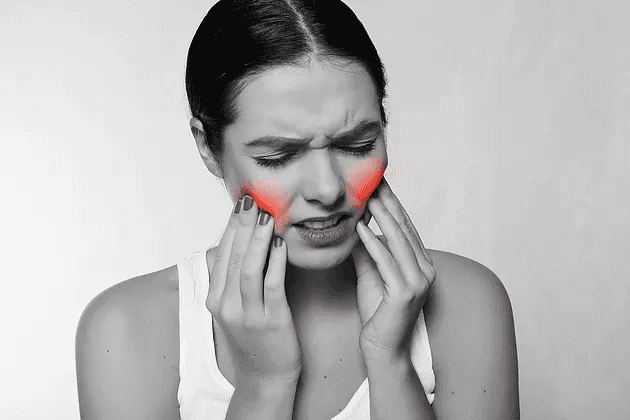
Temporomandibular joint disorder (TMD) is a common condition that limits the natural function of the jaw, such as opening the mouth and chewing, and can cause pain. The temporomandibular joint (TMJ) is a hinge joint that connects your jaw to your skull in front of your ear. The TMJ guides jaw movement and allows you to open and close your mouth and move it from side to side to talk, yawn, or chew.
Symptoms of TMJ include Jaw pain or Jaw fatigue, Difficulty opening your mouth to eat or talk, Ringing in your ears, Dizziness, Headache, Popping sounds in your jaw, Neck pain, Locking jaw.
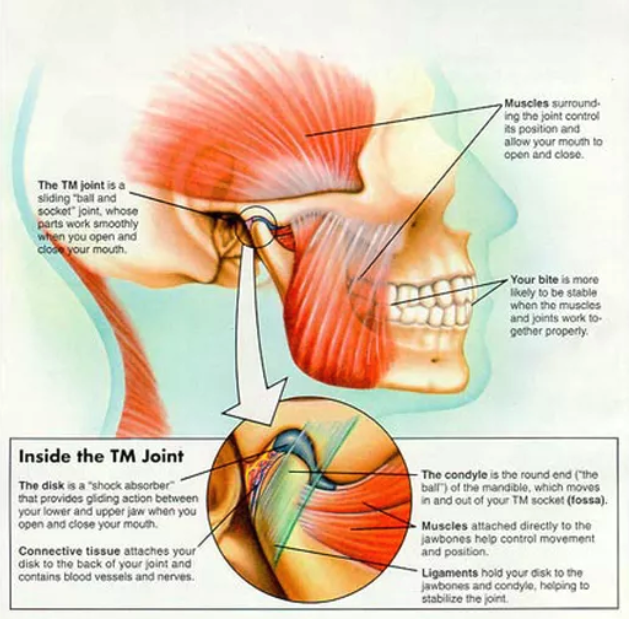
TMD can be caused by:
Bad posture habits.
One of the reasons TMD is so common is because many of us spend a great deal of time sitting at a desk, where we often hold our heads too far forward as we work. But there are many other kinds of bad posture. Sitting in the car for a long commute, working at a checkout station, always carrying your child on the same hip—all can place the head in an awkward position and cause jaw problems. The "forward head position" puts a strain on the muscles, disk, and ligaments of the TMJ. The jaw is forced to "rest" in an opened position, and the chewing muscles become overused.
Chronic jaw clenching or grinding ("bruxism"). Many people clench their jaws at night while they sleep, usually because of stress. Some clench their teeth throughout the day as well, especially when dealing with stressful situations. This puts a strain on the TMJ and its surrounding muscles.
Problems with teeth alignment ("malocclusion"). If your teeth are positioned in an unusual way, greater stress is placed on the TMJ when performing everyday jaw motions, such as chewing.
Trismus ("lockjaw"). This condition—where the jaw muscles spasm and the jaw cannot be fully opened—can be both a cause and a symptom of TMD. Other causes of trismus include trauma to the jaw, tetanus, and radiation therapy to the face and neck.
Other Causes of TMJ are:
- Displacement of the Disc or Soft-tissue Cushion
- Arthritis
- Fracture
- Surgery
To diagnose or identify the cause of your symptoms , your physical therapist may review your medical history, and discuss any previous surgery, fractures, or other injuries to your head, neck, or jaw. Your physical therapist may ask you to describe your pain, including headaches, and observe any pain patterns in the neck and TMJ. As well ass conduct a physical examination of your jaw and neck, including the soft tissue and muscles in the area.
Your physical therapist will evaluate your posture and observe how your cervical spine—the upper portion of your spine, situated in your neck—moves. Your physical therapist will examine your TMJ to find out how well it functions and whether there are any abnormalities in your jaw motion.
If, after the examination, your physical therapist suspects that your pain is a result of the position ("alignment") of your teeth, the therapist will refer you to your dentist for further examination.
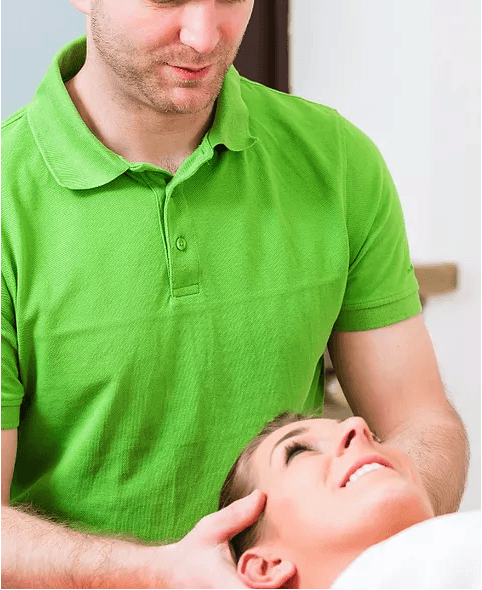
How Can A Physical Therapist Help?
Through Posture Education, Special Pain Treatments, and Posture Improvement your physical therapist can help you restore the natural movement of your jaw and decrease your pain. Based on your condition, your therapist will select treatments that will work best for you. If your TMD is caused by teeth alignment problems, your physical therapist can refer you to a dentist who specializes in TMD.
Ways To Prevent TMJ, TMD.
Maintaining good sitting posture is key to preventing TMJ problems. Place any work you are focusing on (written documents, computer screens) directly in front of you and not off to the side where you are forced to look in one direction for long periods of time. Place your computer monitor at eye level so you don’t have to look up, down, or to the side throughout your day. If you are on the phone at work for long periods of time, use a headset that allows the neck and jaw to remain in a restful ("neutral") position. Avoid repetitive chewing, such as chewing gum. Avoid smoking. Avoid opening the jaw too wide. Avoid eating hard or chewy foods. Maintain good oral hygiene and tooth health. Avoid sleeping on your stomach, which forces the neck to rotate to one direction in order to maintain an open airway, increasing stress on the TMJ. If you tend to have occasional bouts of jaw pain, avoid chewing gum or biting on objects, such as pens or fingernails. Avoid eating hard or chewy food. When you yawn, support your lower jaw with your hand. Avoid large bites while eating. Regularly massage your jaw, cheeks and temple muscles.
References
TMJ Problems – What Does This Mean?
Avenue-Clinic
TMJ Syndrome Prevention. eMedicineHealth.
Additional Articles




